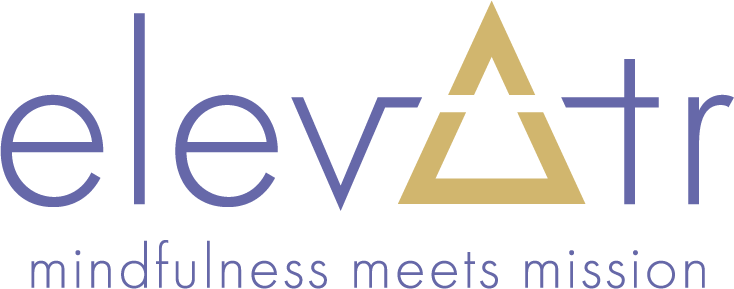I grew up as the eldest sister, and I felt responsible. For. Everything.
While I was still in my mid-teens, my parents would go away for a week at a time and leave me in charge. I’m not saying I was great at it (and from the stories my sister tells, I was pretty clueless), but ever since then I’ve felt the weight of responsibility on my shoulders.

I didn’t really recognize it at first. It manifested in the appearance of confidence, a desire to advise others and solve problems, the need to plan everything, and the self-selection into leadership roles for a variety of service-driven organizations.
If you see the common thread here, you see that what it really manifested was the need to control. And no matter how much reality showed me that I couldn’t control everything, that need carried a weight of leadership that took on a life of its own.
My glass house of control really shattered when COVID hit—after I had moved more than 500 miles to a new community to lead a nonprofit. For two years, it felt like the Wild West.
Yes, I successfully led my organization to greater stability and impact, but I burned out in the process. The weight of leadership that I put on myself became overbearing. I felt pressure to be the savior and finally realized that I was the one who needed saving.
Now, as a consultant working with other purpose-driven leaders, I see the weight they put on themselves, too. And if I may offer some words of advice (because you know that’s what I like to do), I’ll offer these.
Reframe Your B.S. (Belief System)
You can’t put new behavior into action when you’re thinking the same old thoughts. Reframing “weighty” beliefs like, “I can never do enough,” to empowering beliefs like, “I can make a difference,” are game changers in the way we lead ourselves and our teams. They promote focus, clarity, and well-being.
Let Surrender Liberate You
Surrender doesn’t always mean giving up. It means allowing yourself grace when you don’t know every answer and can’t solve every problem. It means adapting to change instead of trying to force an outcome. It means trusting that you can handle whatever comes your way (and if you’re still alive reading this, that statement is 100% true).
As Pema Chödrön said, “Letting there be room for not knowing is the most important thing of all. We try to do what we think is going to help. But we don’t know. We never know if we’re going to fall flat or sit up tall. When there’s a big disappointment, we don’t know if that’s the end of the story. It may be just the beginning of a great adventure. Life is like that. We don’t know anything.”
Build a Support System
If there’s one thing I’ve learned through this journey, it’s that we can’t go it alone. We need each other. And we need to create safe spaces for transparent conversations that foster our growth and renew our energy so we can still carry the weight of leadership, but carry it more lightly.
If you’re a nonprofit executive in the Upstate SC area who would benefit from a day with a supportive group of peers, I invite you to join me in my home for a one-day retreat in July. We’ll recharge, be inspired, and make deeper connections with some other purpose-driven rockstars! Spaces are already filling up, so click here for more information and email me to get on the wait list (no commitment required).
